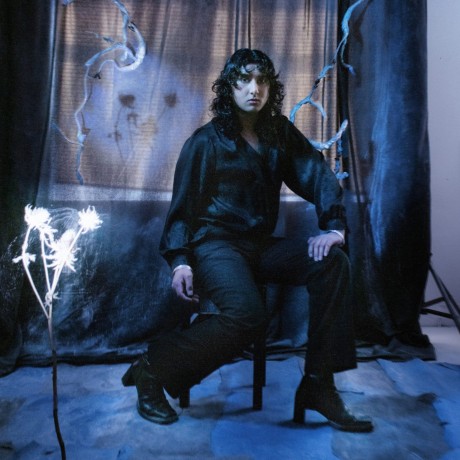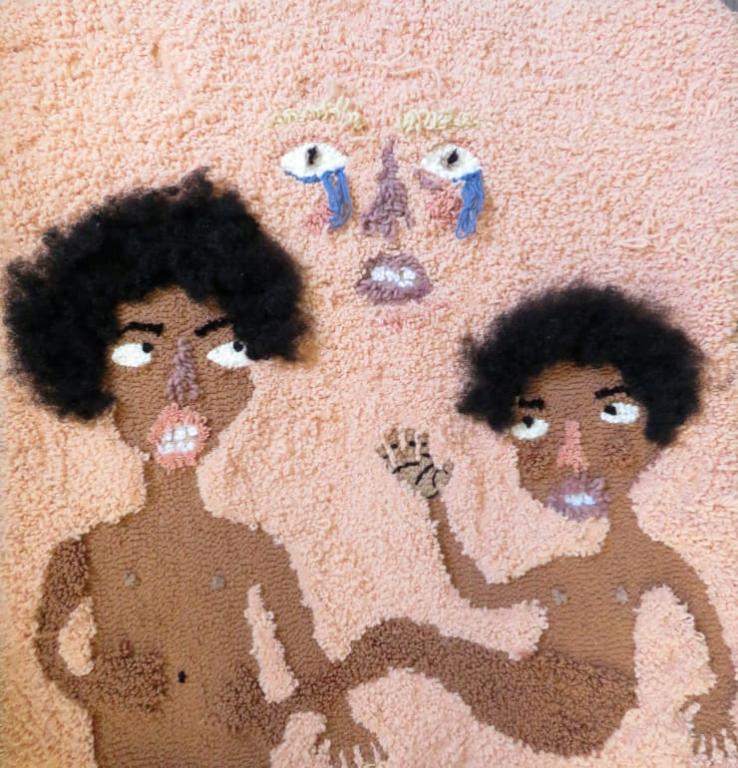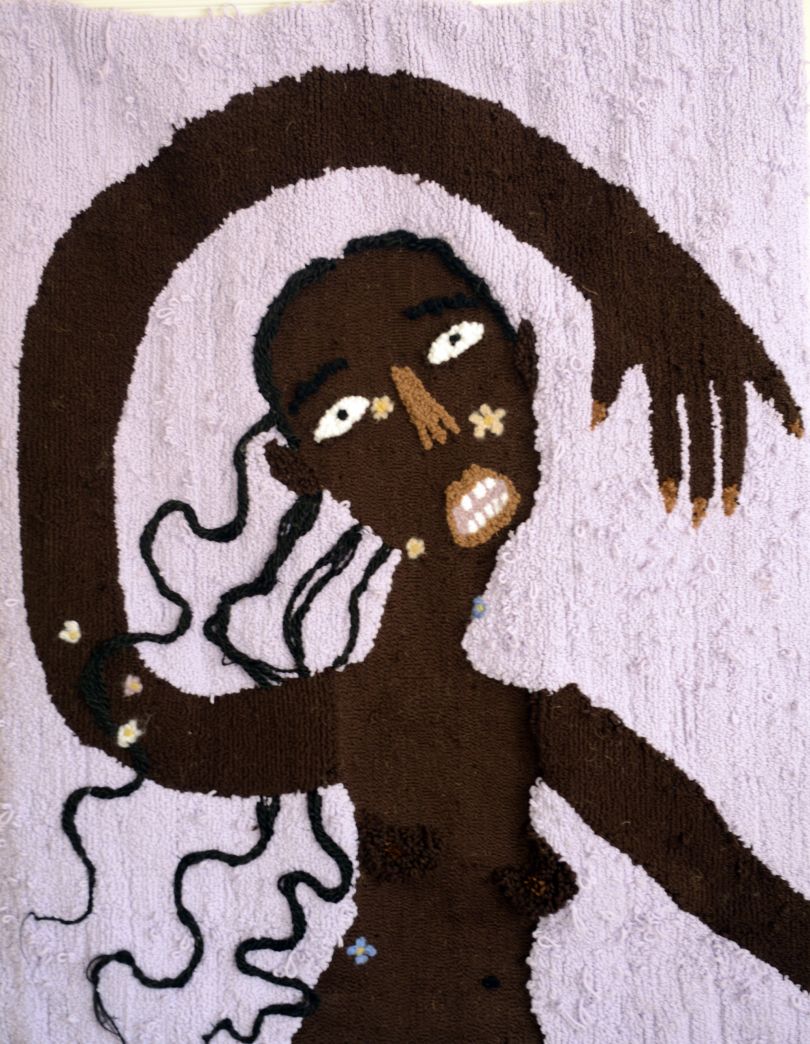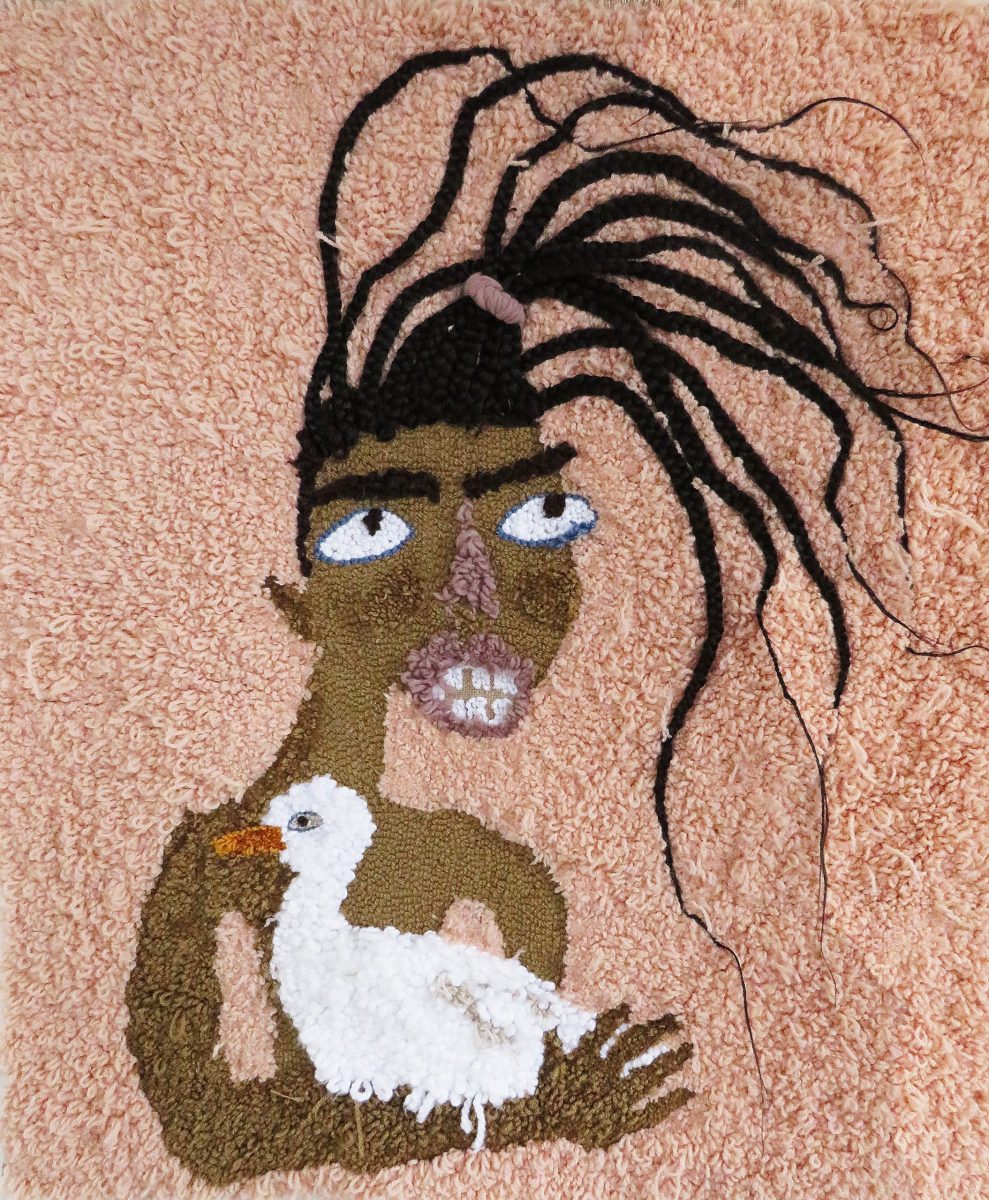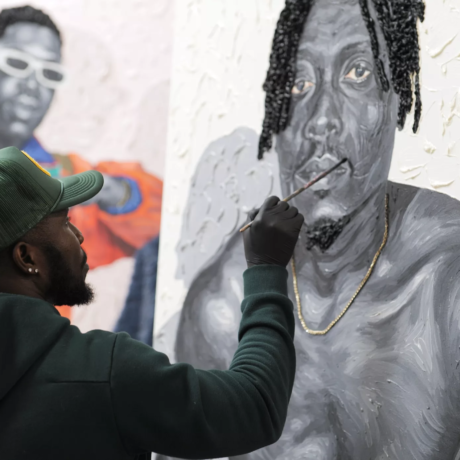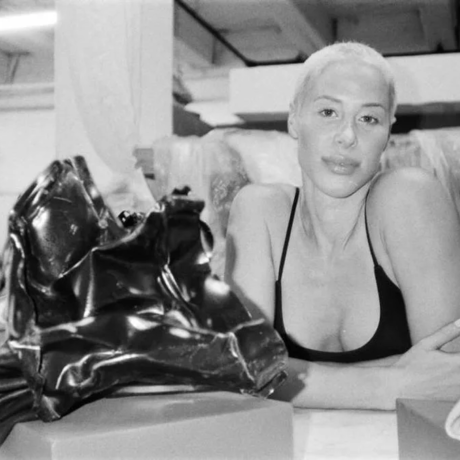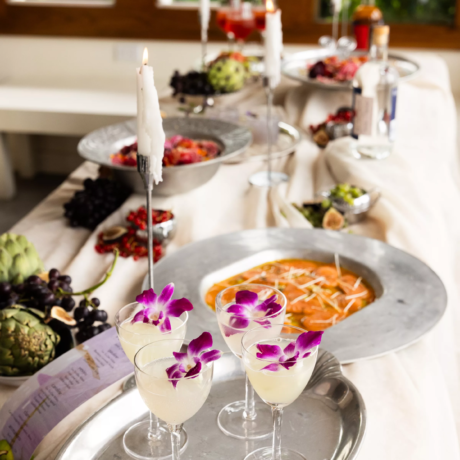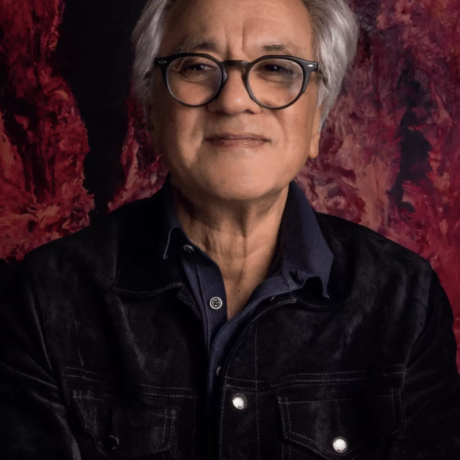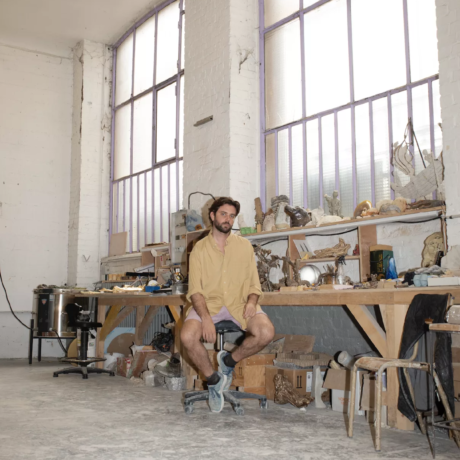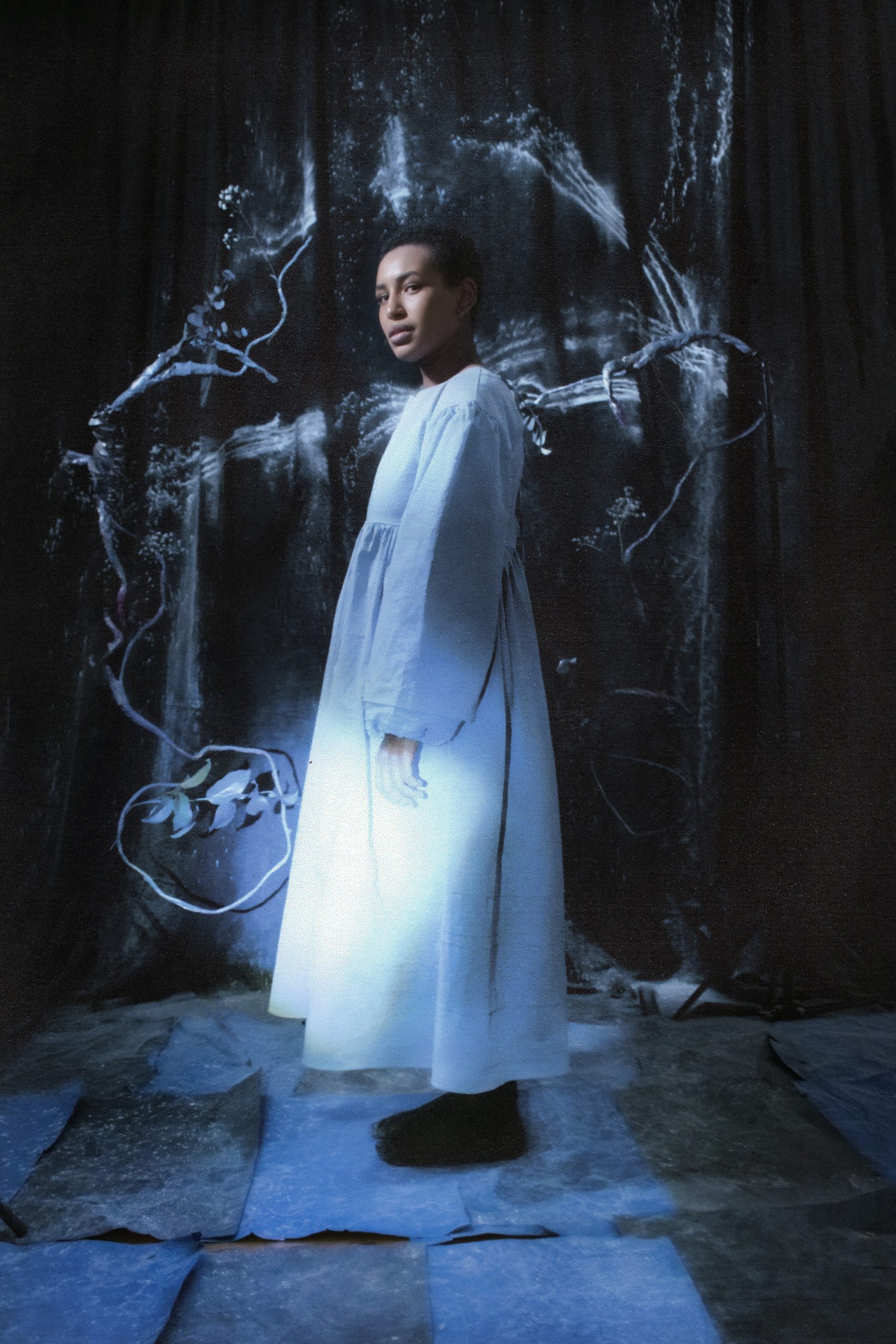
Anya Paintsil graduated from the Manchester School of Art in 2020. She employs traditional rug hooking techniques learnt from her Welsh grandmother, as well as embroidery and other methods, to create tactile textile works that allude to her own life experiences.
‘State of the Nation’ is a special series in which artists discuss how living in the UK informs their work and their ways of thinking about unity and identity, home and heritage.
My early childhood was very typically Welsh, I spent most of my time with my grandma who was from Anglesey, I attended a Welsh-language nursery and primary school, dressing up in Welsh national dress every St David’s day and taking part in The Urdd. There was a lot of Ghanaian influence too from my dad, plus my mum had lived in Ghana before I was born, so she was also super familiar with the culture and the food, and speaks better Twi than I do! My home life was a hybrid but the world that surrounded me was very, very Welsh.
I do think my work is misread a lot, but not because of my identity. I don’t really care that much, though. There are some pieces I’ve made that have immeasurable personal value to me and, while I do often explain the stories behind them to people in real life, it always feels a bit weird communicating these things en masse. I’m happy for people to take what they want from any individual work.
That being said, it is important to me that people can have some understanding of how I see the world. I think its integral to understanding to my work to know that I am a Welsh artist and a Ghanaian artist, particularly because my way of working was borne out of an idea to celebrate traditional “women’s work” from both sides of my heritage.
“I think its integral to understanding to my work to know that I am a Welsh artist and a Ghanaian artist”
While not specifically Welsh, rag-rugging techniques were passed down to me from my Welsh grandmother, and while not specifically Ghanaian, I learnt to braid and twist hair by watching African women doing my hair as a child and mimicking their techniques. I see working in the way that I do as a representation of who I am.
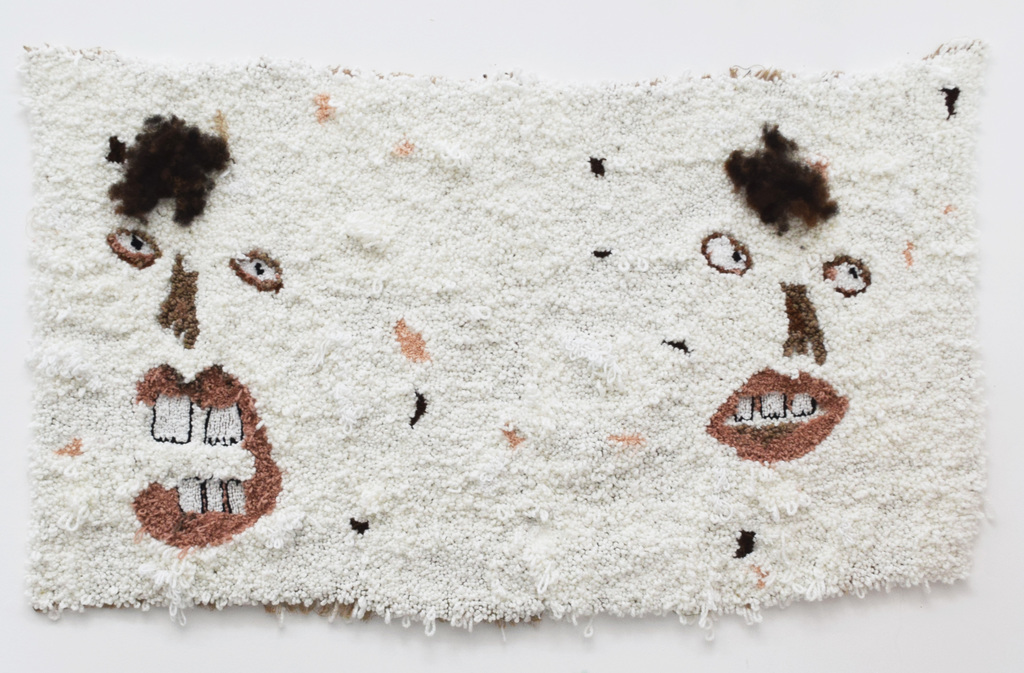
It’s also important to me to take up space as a Welsh person of colour, largely because my ‘Welshness’ has always been questioned. Growing up in Wales I would always be asked where I came from, with people often outright refusing to believe me when I would tell them I was born and grew up in North Wales, and often being positively dumbfounded when I’d tell them I was a Welsh speaker.
“It’s important to me to take up space as a Welsh person of colour”
My work Anya or Anum is a physical representation of depersonalisation and loss of individual identity. Growing up I was often confused with the few other girls of colour around, regardless of our racial differences, height, and varied physical appearances. We were all just ‘not white’, other, and therefore all the same. The title comes from one teacher who repeatedly called me Anum, the name of a south Asian girl in my school.
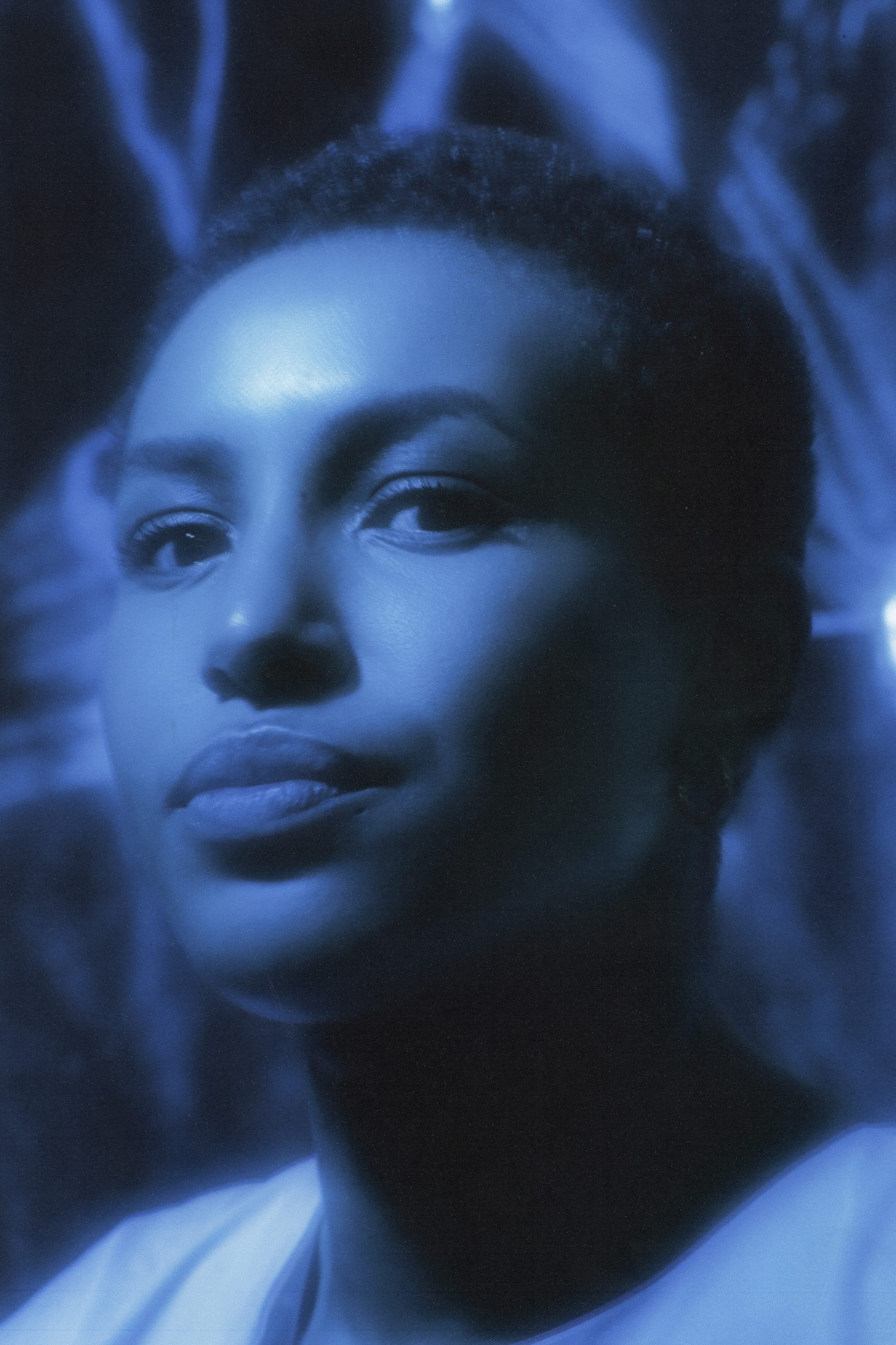
There is a perception that ‘Welsh’ is an exclusively white identity, in a way that Britishness is not, both by people living in Wales and people living outside Wales. I think people like me, not just in Wales but POC in communities outside multicultural cities at large, need representation. When I moved out of North Wales, to Glasgow and then to Manchester, making friends with POC who had grown up in London, in communities where they weren’t an anomaly, or constantly questioned and stared at like the aliens had landed, I felt like I had grown up in an entirely different universe.
“People like me, not just in Wales but POC in communities outside multicultural cities at large, need representation”
I ultimately do feel far more Welsh than I do British. I suspect this is largely to do with being a Welsh speaker. It was particularly special for me to be able to have my debut solo show at a Welsh museum, Glynn Vivian in Swansea. I’m not particularly patriotic but Wales is the place I will always consider to be my home.
Charlotte Jansen is an arts journalist and author, as well as Elephant’s former editor-at-large
This article appeared in Elephant 46: Autumn Winter 2021, available to buy here
